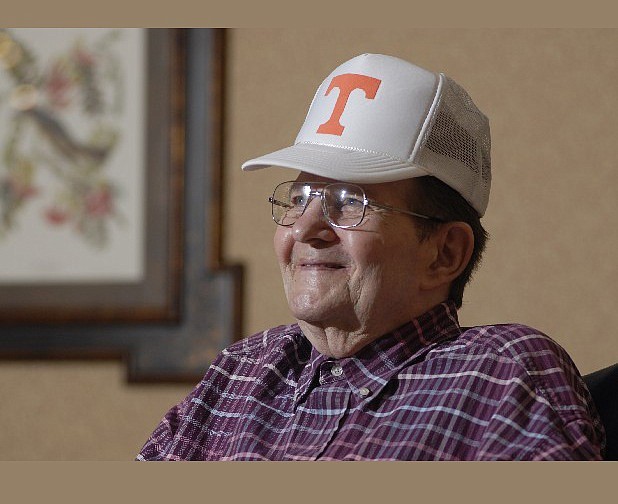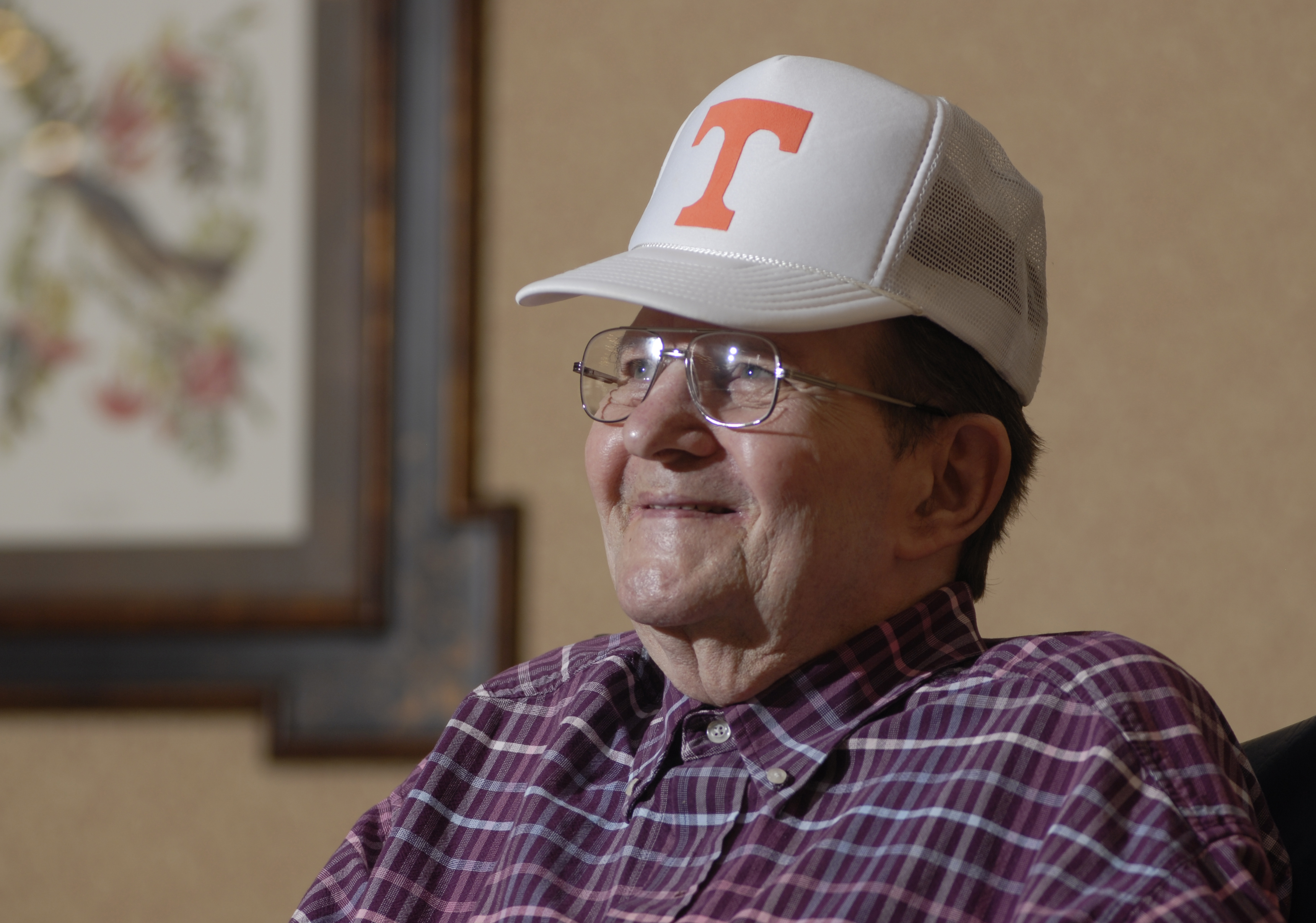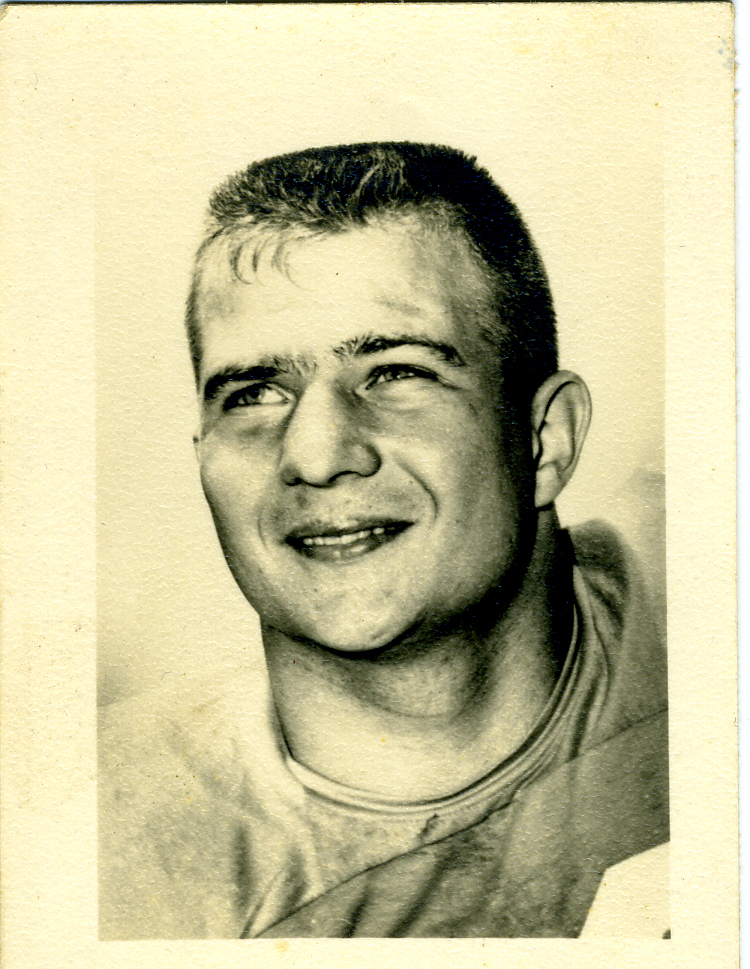Time has clouded a few of the memories from his life, but when Ken Honea talks about his years of playing football, the details become as clear as a sun-splashed autumn afternoon sky.
Clinching his jaw tighter around the plug of Red Man chewing tobacco, Honea raises a cup to his mouth and spits before recalling each new story from his time first as a two-way star at City High and the University of Tennessee, then as a linebacker for the New York Jets and later as a successful high school coach.
"I just played as hard as I could every day in practice and in games," Honea said. "I ran a lot of extra sprints and lifted weights. I did whatever I could to be ready to play. I wasn't real big, but I was strong and I think I was pretty tough. I had to be, because I played against a lot of guys who were a lot bigger than me.
"I still watch Tennessee's games on TV. I wish they could get back to what they were so I could be proud. They're so much bigger now, but they don't seem to be as tough as when I played."
Honea, now a resident at the Life Care Center in East Ridge, lived in Ider, Ala., until the third grade. The struggles of being a farmer didn't provide the life Honea's father wanted for his family, so he took a job at Combustion Engineering and moved his wife and son to Chattanooga.
Honea quickly excelled at football soon after he began playing that sport in junior high. By his senior year at City High, he remembers, he sometimes came home from school to find college coaches from Tennessee, Auburn, Ole Miss or Alabama sitting in his living room talking to his mother.
"I got tired of coming home and having a different coach there so much," Honea said. "I was a quiet kid and I just didn't like all that attention. I decided I would go to Tennessee because it was close to home."
At UT he rarely came off the field, playing as a 6-foot, 205-pound linebacker and blocking back as well as on all special teams. In a November 1962 article in the Knoxville News-Sentinel, Honea was described as the Vols' "number one linebacker."
He was a Southeastern Conference player of the week at least twice.
One of his shining moments on the field came during one of the nation's darkest hours. On Nov. 23, 1963, just one day after President John F. Kennedy was assassinated, Honea, a senior at the time, caught a 14-yard pass and caused two fumbles to lead the Vols to a 19-0 win at Kentucky.
The Tennessee team already was in Lexington, going through its final practice, that Friday afternoon when the surreal news was announced that the president had been shot and killed in a Dallas motorcade.
While many of the nation's sporting events were canceled or postponed, the entire SEC schedule of games was played that next day. But the pageantry normally associated with college football games in the South was missing. The cheerleaders didn't lead any yells. The Beer Barrel, the trophy back then for each year's winner in the UT-UK rivalry, was not on the field. At halftime Kentucky governor Bert Combs led a somber memorial service and the two university bands combined to play the national anthem.
"We went back to the hotel after practice and then went in and played the game the next day," Honea said, recalling the events as we near the 50th anniversary of that day. "Once they said we were going to play, I just tried to block out everything else.
"I was the kind of player who needed to concentrate on what my job was or else I wasn't very good. I didn't really notice much in the crowd or off the field that day. I was just there to do my job. It really hit me after the game, what had happened. That's when it all sank in."
Honea followed his all-star college days by playing one season with the Jets before finishing his career with a two-year stint of semi-pro ball in Richmond, Va. But football was too much a part of who he was for him to walk away from the game, so Honea began what became a 30-year prep coaching career, first at Clinton (Tenn.) High and later at Cookeville and then Sparta.
"I taught P.E. first and then became a special education teacher, and I loved working with kids," Honea said. "I enjoyed my playing days at Tennessee and then getting to play with guys like Joe Namath for a year. Namath had the quickest release I've ever seen, but what I really remember was that his mouth never stopped. He was always talking, but it wasn't about football: It was mostly about women and drinking and partying. Let's just say he enjoyed living in New York. But everybody liked him and I thought he was a good old guy.
"I just wasn't the kind of guy who wanted to go out like he did. I was better off when I started coaching and especially working with the special-ed kids. Those kids really appreciated your attention and kindness, and that was a great time for me."
In 1996, with his parents' health declining, Honea retired from teaching and coaching, sold his house and moved back to Ider look after them. He returned to Chattanooga two years ago, moving into the Life Care Center, where he's become known as one of the first people to greet visitors at the front entrance.
"You won't find a more unassuming guy than Ken," said Ben Zani, the center's executive director. "You wouldn't know that he was in the NFL or a legendary football coach because he's as humble as a man can be. I've heard that he was a tough coach, but the Ken Honea I've gotten to know is kind, warm and friendly -- an old softie, really. I joke that he's the unofficial mayor of Life Care of East Ridge, because he seems to shake hands with and give a compliment to everyone he sees. And on football Saturdays, there isn't a prouder Vol on the planet."
Contact Stephen Hargis at shargis@timesfreepress.com or 423-757-6293.


